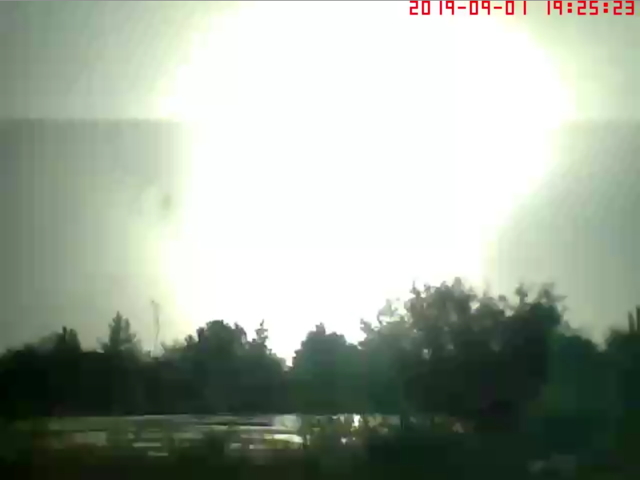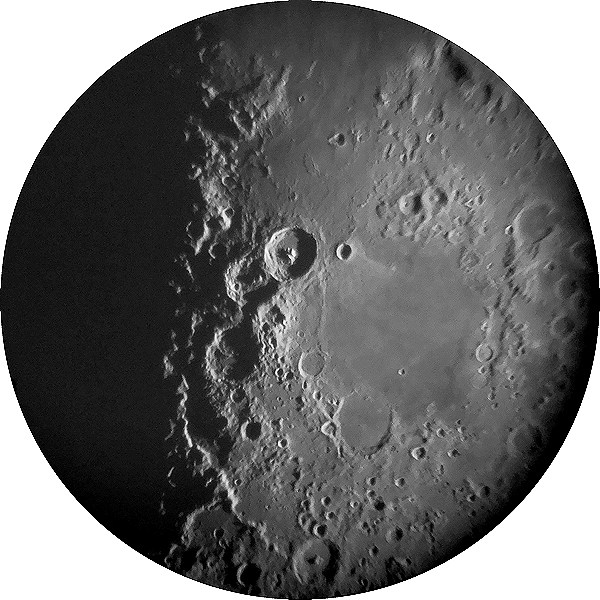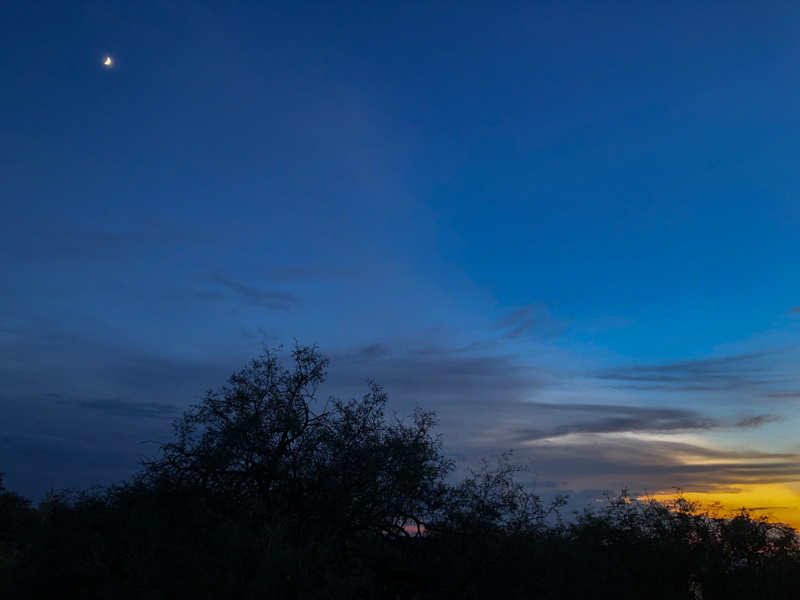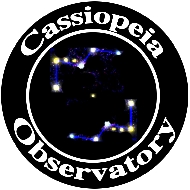Short Session with Clouds, Moon, Jupiter, Saturn
Posted: 5 September 2019
Friday, 30 August 2019, dawned clear, but clouds began appearing mid-morning with some Monsoon Season thunderstorms in the area in the late afternoon. Sunday afternoon, 1 September 2019, there was a Monsoon thunderstorm west of Oracle. An apparent lightning caused wildfire (at right in the photo below) created a lot of smoke west of Oracle:

Click or tap on image for larger version
Had a brief thunderstorm Sunday evening with some rain (0.13") amd lightning.
 |
 |
 |
Tuesday afternoon, 3 September, had a brief thunderstorm come through. There was rain in the area but only a trace here. Wednesday morning, 4 September, it was clear, with a clear sky forecast for the night. But by mid-day clouds began appearing. As sunset approached the sky was partly cloudy. With cloudy skies in the forecasts for the next several nights I decided to go to the observatory and at least do some Moon observing.
|
Open: Wednesday, 4 September 2019, 1831 MST Temperature: 100°F |
Session: 1379 Conditions: Partly cloudy |
Equipment Used:
12" f/8 LX600 w/StarLock
2" 24mm UWA eyepiece
1.25" 9mm eyepiece
1.25" 2X Barlow Lens
Camera:
iPhone 8 Plus
1838 MST: LX600 ON, StarLock OFF, High Precision OFF.
1840 MST: viewed the near First Quarter Moon, 102X, through some thin clouds.
Took this handheld iPhone 8 Plus afocal 102X photo of the Moon using the Camera app:

1841 MST: this was the sky towards the southwest just prior to sunset. The Moon is at the upper left.

1844 MST: sunset (maybe, hidden behind clouds).
Did some lunar observing, 271X. The craters Theophilus, Cyrillus, and Catherina looked pretty nice.
Mounted the iPhone 8 Plus on the 9mm eyepiece using the Phone Skope adapter and used the Phone Skope remote to take the following images of the craters Theophilus, Cyrillus, and Catherina using the iOS app NightCap Camera.
afocal 271X (ISO 22, 1/100sec)

afocal 542X (ISO 250, 1/70sec)

1858 MST: ended lunar imaging. This is how the sky to the southwest appeared with the Moon in the clouds:

Viewed the planet Jupiter through clouds, 102X and 271X. Three moons and the Great Red Spot were visible. The shadow of the moon Io was transiting near the central meridian.
1907 MST: viewed the planet Saturn and its moon Titan through clouds, 271X and 102X.
Due to the clouds I did not try imaging Jupiter and Saturn. Decided to end the session.
1909 MST: LX600 OFF.
|
Close: Wednesday, 4 September 2019, 1921 MST Temperature: 91°F |
Session Length: 0h 50m Conditions: Mostly cloudy |
Comments are welcome using Email. Twitter users can use the button below to tweet this report to their followers. Thanks.
Cassiopeia Observatory Home Page
Copyright ©2019 Michael L. Weasner / mweasner@me.com
URL = http://www.weasner.com/co/Reports/2019/09/05/index.html
